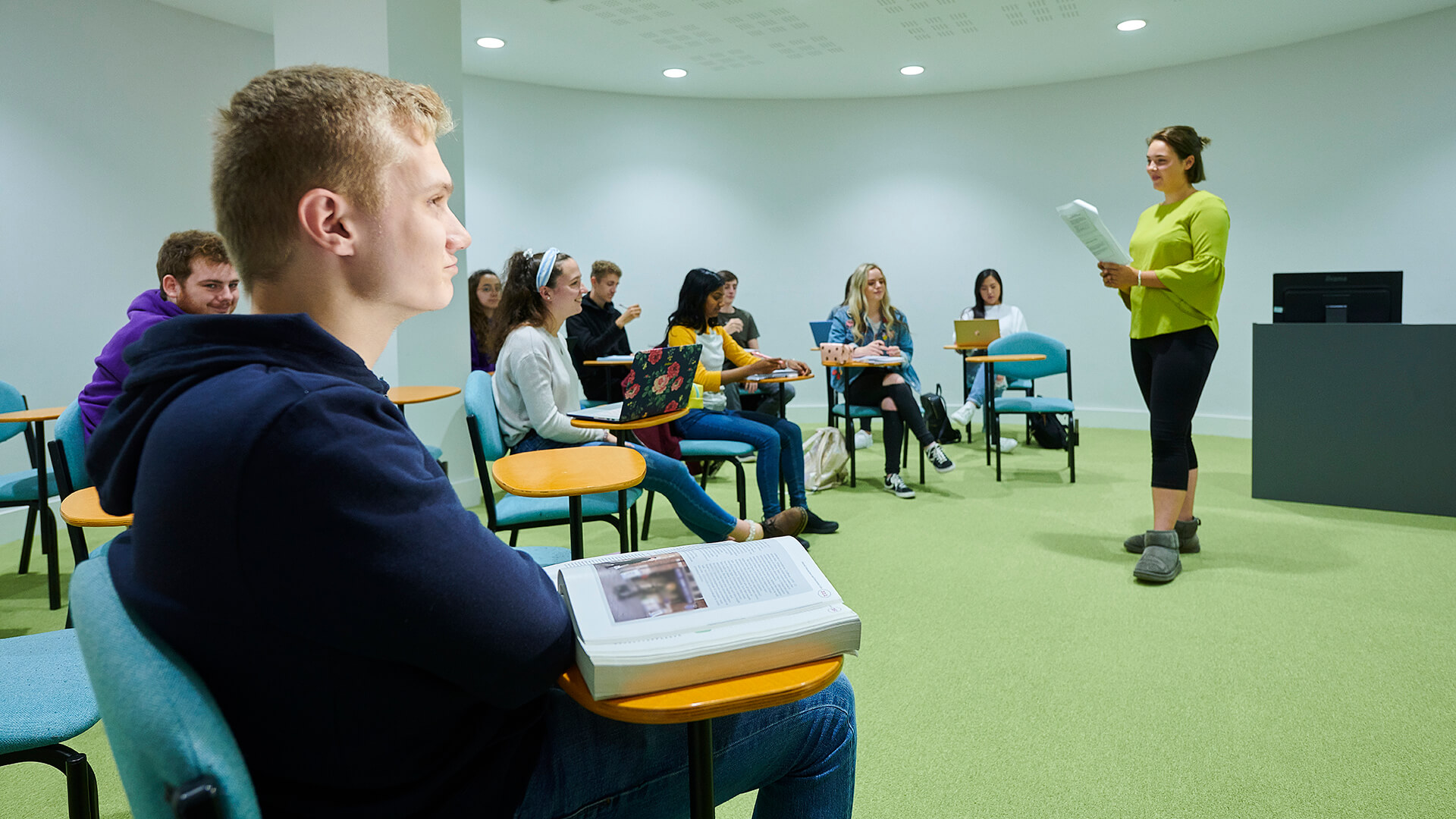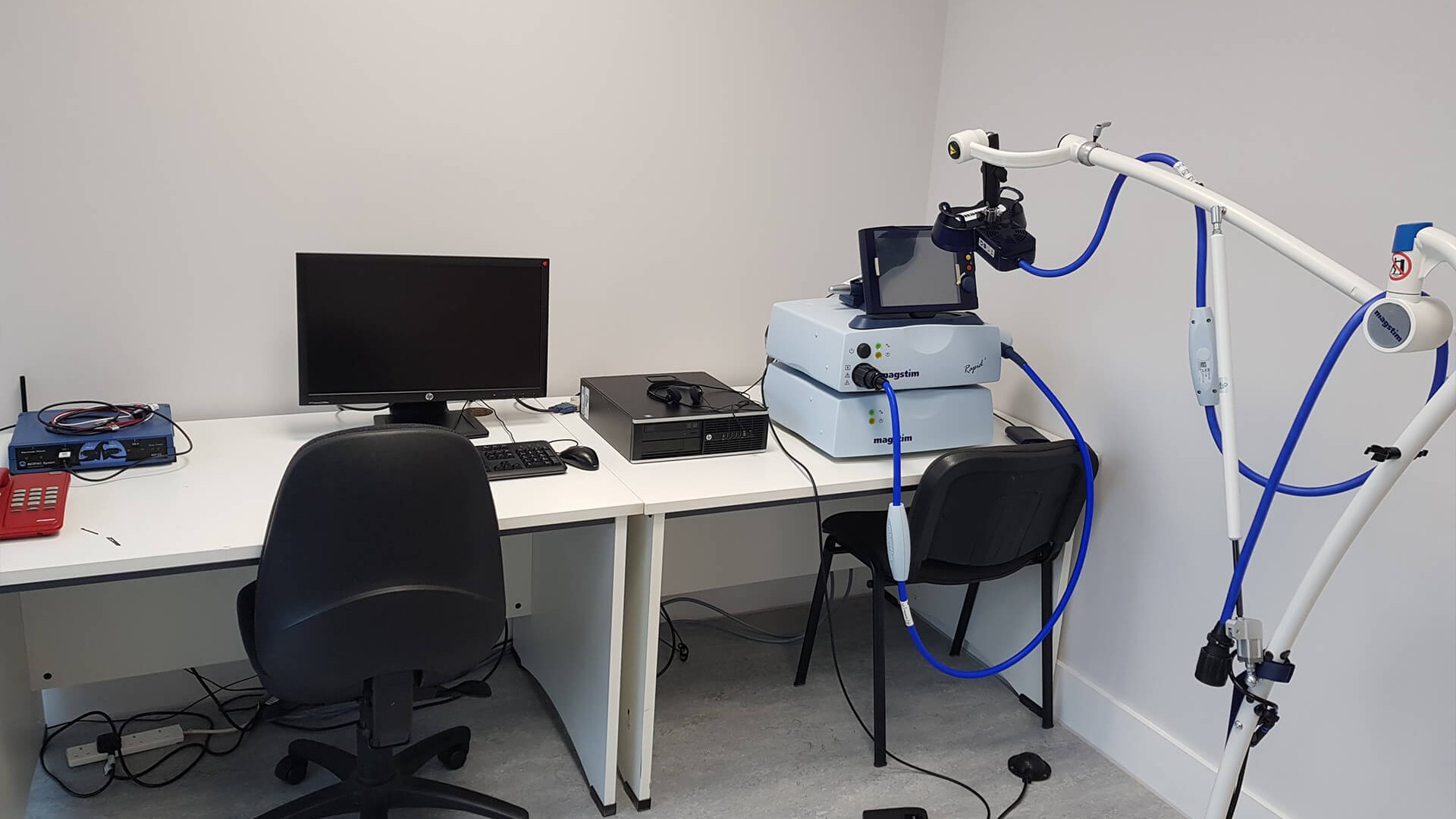Graduate Teaching Assistant PhD Studentships Psychology and Neuroscience



All postgraduate researchers (PGRs) are registered in the University’s Graduate School and housed in the faculty or department that is most appropriate for the project on which they are working. PGRs working on Psychology and Neuroscience projects are normally housed in the Department of Psychology.
The Department of Psychology is part of the Faculty of Arts and Sciences at Edge Hill University. Established in 2011, we moved into a purpose-designed building with state-of-the-art facilities in November 2018 and we continue to benefit from ongoing investment to further develop our research environment. Our ambition is to make important contributions to knowledge beyond disciplinary boundaries, and for our students to receive a transformative education marked by teaching excellence and outstanding student support.
Our research and teaching have explicit foci on major global challenges. Our integrated aim is to attain and maintain excellence in learning and teaching, research and knowledge exchange, and impact (from individual development to societal change). We are a welcoming and committed team, espousing positive organisational principles. The department appears in the Times Higher Global Rankings (401-500), was ranked second best in the North West in the 2024 Guardian League Table, and holds an Athena Swan Bronze Award in recognition of our ongoing commitment to equality, diversity and inclusion.
We are keen to build on our growing international reputation for research excellence and and, with this in mind, are looking to recruit outstanding postgraduate researchers to join our vibrant and friendly team.
We particularly welcome applications for studentships in the research areas outlined below, with additional research information on the research area web pages. All postgraduate researchers will be supported by a supervisory team with appropriate expertise. See the University’s research repository for further information on the research outputs of each member of staff.
In the first instance please direct all enquiries about proposed projects on topics related to Psychology and Neuroscience to [email protected] with Dr Dorothy Tse, Graduate School Research Degree Contact for psychology and neuroscience included ([email protected]).
Research areas
The department welcomes applications for studentships in specific project areas outlined below. Applicants should indicate the topic they are applying for when they submit their research proposal.
| Research groups | Likely Director of Study (DoS) | Brief Summary of Research Interests |
| The Ageing Brain | Alex Balani | Research exploring human cognitive functions; e.g., attention, working memory, and executive function. Short- and long-term effects of brain injuries on cognition, behaviour, and quality of life and on the outcome of cognitive rehabilitation after brain injury. |
| The Ageing Brain | Dorothy Tse | Learning and memory. What makes memories last? How factors such as emotion, novelty and prior knowledge affect episodic, semantic and spatial memory. Another research area is to investigate different strategies to alleviate mild cognitive impairment and dementia symptoms. Using Minecraft as a tool to investigate learning and memory. |
| The Ageing Brain | Joanne Powell | Using the creative arts and arts psychotherapies for mental health, wellbeing and trauma; 2. Mattering and loneliness as psychological mechanisms for mental health research; 3. hemispheric laterality, bilateral integration, and neural plasticity for cognition, mental health and wellbeing. |
| The Ageing Brain, Social Cognition and communication | Nicola van Rijsbergen | 1) Using EEG to study recognition of emotional states in the self and others; 2) Ageing and neurodiversity (alexithymia, autism spectrum) – how does the emotional brain change as we grow older? 3) The ‘authoritarian’ disposition and perceptual biases. |
| The Ageing Brain | Stergios Makris | 1) Bridging neuroscience with the art therapies. 2) The neural basis of eating behaviour and eating disorders. 3) The neural and cognitive correlates of elite sport performance. Methods: non-invasive brain stimulation; EEG; behavioural. |
| The Ageing Brain, Neurodiversity, Social Cognition | John Shaw | The impact of sleep on various cognitive functions, such as memory consolidation or information processing (e.g. Problem Solving). The links between social media and sleep in preadolescents. Other research interests relate to Autism Spectrum Disorder/Condition and understanding of ownership within that (in collaborate with colleague at Lancaster). |
| Cancer and Chronic Conditions | Andy Levy | Utilising social psychological theory and individual differences to understand, intervene and change lifestyle related cognition and behaviour. Three specific strands of interest are 1) mental biases and lifestyle related decision making; 2) personality and psycho-social determinants of lifestyle beliefs and behaviour; 3) interventions to change lifestyle behaviour. Methodologies: Quantitative and qualitative research design and analyses. |
| Cancer and Chronic Conditions & Sensing Brain | Damien Litchfield | Eye tracking, visual search, scene perception, medical image perception and cancer detection. Also focus on research on gaze perception and gaze interpretation. |
| Cancer and Chronic Conditions | Derek Larkin | Psychosocial Oncology. Cancer affects 1 in 2 people, with this there is an increasing interest in the process of living with and beyond cancer. Research would be concerned with aspects of individuals’ experience with cancer beyond medical treatment, and across the cancer trajectory, including at diagnosis, during treatment, transitioning to and throughout survivorship, and approaching end-of-life care. |
| Cancer and Chronic Conditions | Mark Forshaw | Health psychology in general, but with particular interests in how we respond to crisis, such as pandemics, natural disasters, financial crashes etc. Also, work on readability and health literacy. |
| Education and Learning | Laura Nicholson | Psychological predictors of student motivation and engagement including evaluation of teacher messages, achievement emotions, test anxiety, wellbeing at school and in general, student-teacher relationships and personality. |
| Sensing Brain | Andrea Piovesan | 1) Understanding preferences and dislikes of people with autism, ADHD and dyslexia for typefaces (e.g., Times New Roman, Arial or Calibri). |
| Sensing Brain | Diana Tham | 1)Research focusing on how infants and children learn from the visual world using eye-tracking technology. This includes perception of faces (emotion, race, gender) and objects (cross-modal perception, colour perception) which informs the development of social cognition. 2)Research area focusing on the development of facial mimicry. This research combines eye-tracking and facial electromyography (EMG) technology to examine the ways in which we develop these non-verbal cues. |
| Sensing Brain | Elena Spiridon | The effect of feedback on mood and goal pursuit motivation; ambient colour light effects on mood and motivation; sleep deprivation and Melanopsin deficits. EEG, facial EMG, ECG, ICG. |
| Sensing Brain, Social Cognition & Communication | Michel Belyk | Vocal communication: Singing, speech, and first impressions. Research on how the voice is used effectively, how it goes awry in speech disorders, vocal hygiene, how attractive, dominant, and trustworthy we sound to others. Topics on ASMR also welcome. Methods: Audio playback, audio recording, acoustical analysis. |
| Sensing Brain, Social Cognition & Communication | Valeria Occelli | Exploring individual differences in sensory perception and cognition: How are cognitive and perceptual processes affected by individual variability in traits, beliefs and personality (e.g., authoritarian dispositions)? Multisensory integration and crossmodal plasticity. |
| Social Cognition and Communication | Geoff Beattie | Human multi-modal communication and cognition, 2. The relationship between iconic gesture and speech in human communication. 3. The psychology of climate change, 4. Implicit cognition and sustainable behaviour, 5. Behaviour change, 6. Implicit racial prejudice, 7. Cognitive biases, 8. The analysis of political discourse, 9. Ethnographic approaches to social life. |
| Social Cognition and Communication | Helen Wall | Legal / forensic psychology, primarily social and cognitive factors that influence vulnerable witnesses recall and recognition accuracy. Other research interests include examining the role of psychosocial factors within the courtroom and the extent to which such factors may impact decision-making as well as examining the way in which deliberating (mock) juries reach their decisions. |
| Social Cognition and Communication | Joyce Humphries | Legal / forensic psychology, primarily interested in investigating factors that influence the recall and recognition accuracy of vulnerable witnesses. Other research interests include examining the role of psychosocial factors within the courtroom and the extent to which such factors may impact the impartiality of (mock) jurors’ decision-making. |
| Social Cognition and Communication | Linda Kaye | 1) Understanding psychological responses to emoji; 2) Exploring factors relating to technology acceptance and adoption; 3) Understanding how digital traces reveal individual differences. |
| Substance use and Appetite | Adam Qureshi | Social cognition, executive function, the contribution of executive function to social cognition. Perspective taking and theory of mind in adults, and the role of theory of mind and gaze direction in online communication using virtual agents. Executive function and alcohol-related cognitions. |
| Substance use and Appetite | Derek Heim | Social psychological approaches to substance use, addiction and associated factors (e.g., stigmatisation, recovery, use in sub-cultures, minority populations). Expressions of interest for approaches using qualitative and/or quantitative methods are welcome. |
| Substance use and Appetite | Lauren McGale | Research exploring eating behaviours. Projects may include, but are not limited to, the following topics: 1) food insecurity and eating behaviours; 2) the impact of food marketing (e.g. sports sponsorship, influencers) on eating behaviours; 3) sustainable eating behaviours (e.g. food waste, veganism, alternative proteins (soy, insects, algae); 4) the impact of alcohol-induced hangovers on eating behaviour. Expressions of interest for projects using quantitative and/or qualitative research methods are welcome. |
| Substance use and Appetite | Rebecca Monk | Exploring the impact of social and environmental contextual influences on substance use and related beliefs, with a particular focus on alcohol. Projects are welcome which seek to harness real-world research, controlled laboratory experiments (e.g., bar laboratory), and/or advanced technologies (e.g., Smartphone Applications, TMS, Facial EMG). |
| The Substance use and appetite research group | Phillip Murphy | Genetic bases influencing the experience of substance use (i.e. cannabis, alcohol, ecstasy (MDMA), cocaine, heroin), including effects on cognitive processes (e.g. memory), mood stability, withdrawal from substance use, and the maintenance of abstinence. Additionally, the relationship of self-efficacy beliefs to the processes of withdrawal from substance use, and the maintenance of abstinence. |
Candidates are welcome to contact the possible Director of Studies (DoS) to discuss any applications. Staff email addresses can be found here. Please note that ‘likely’ supervisors are not guaranteed.